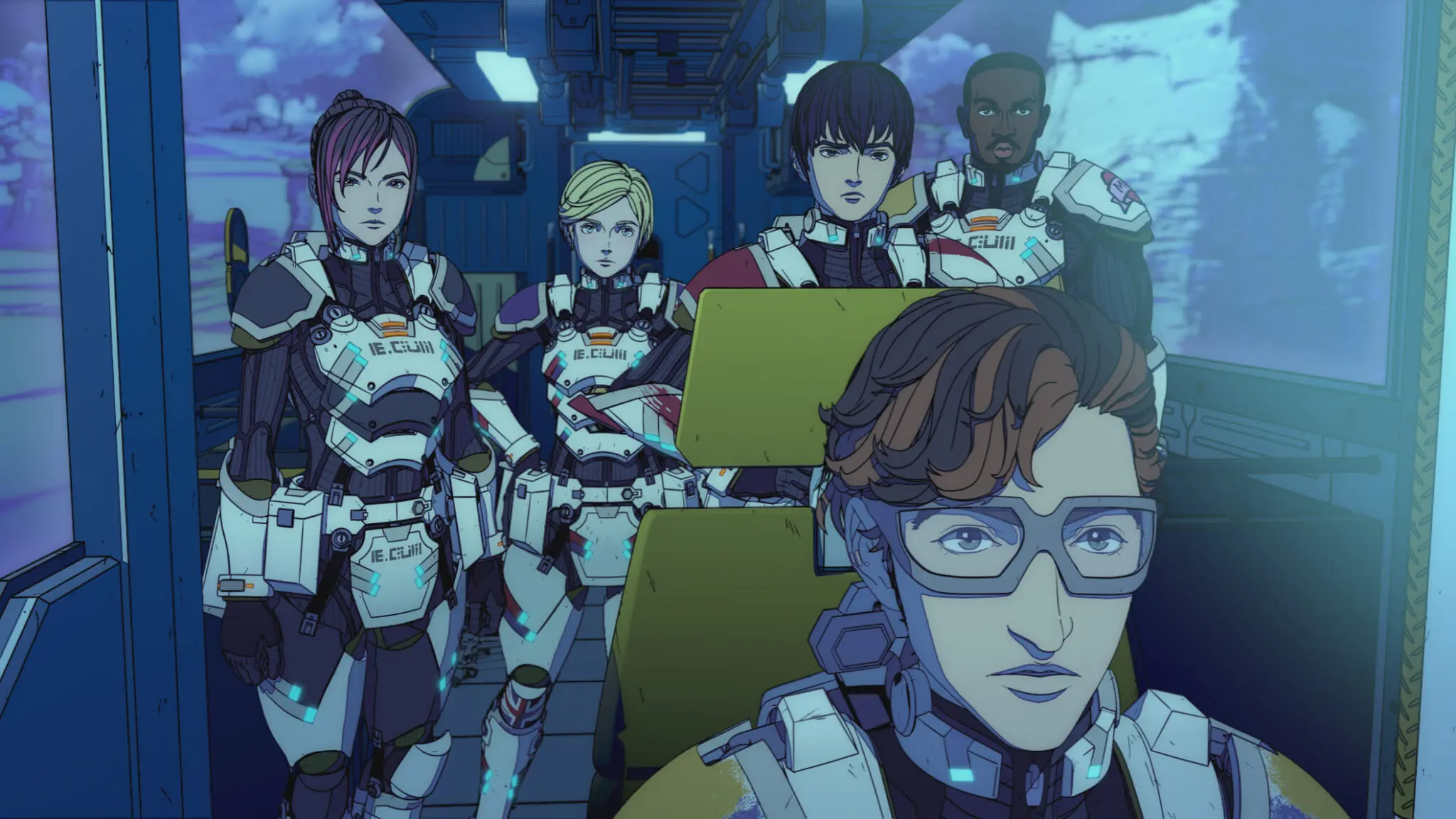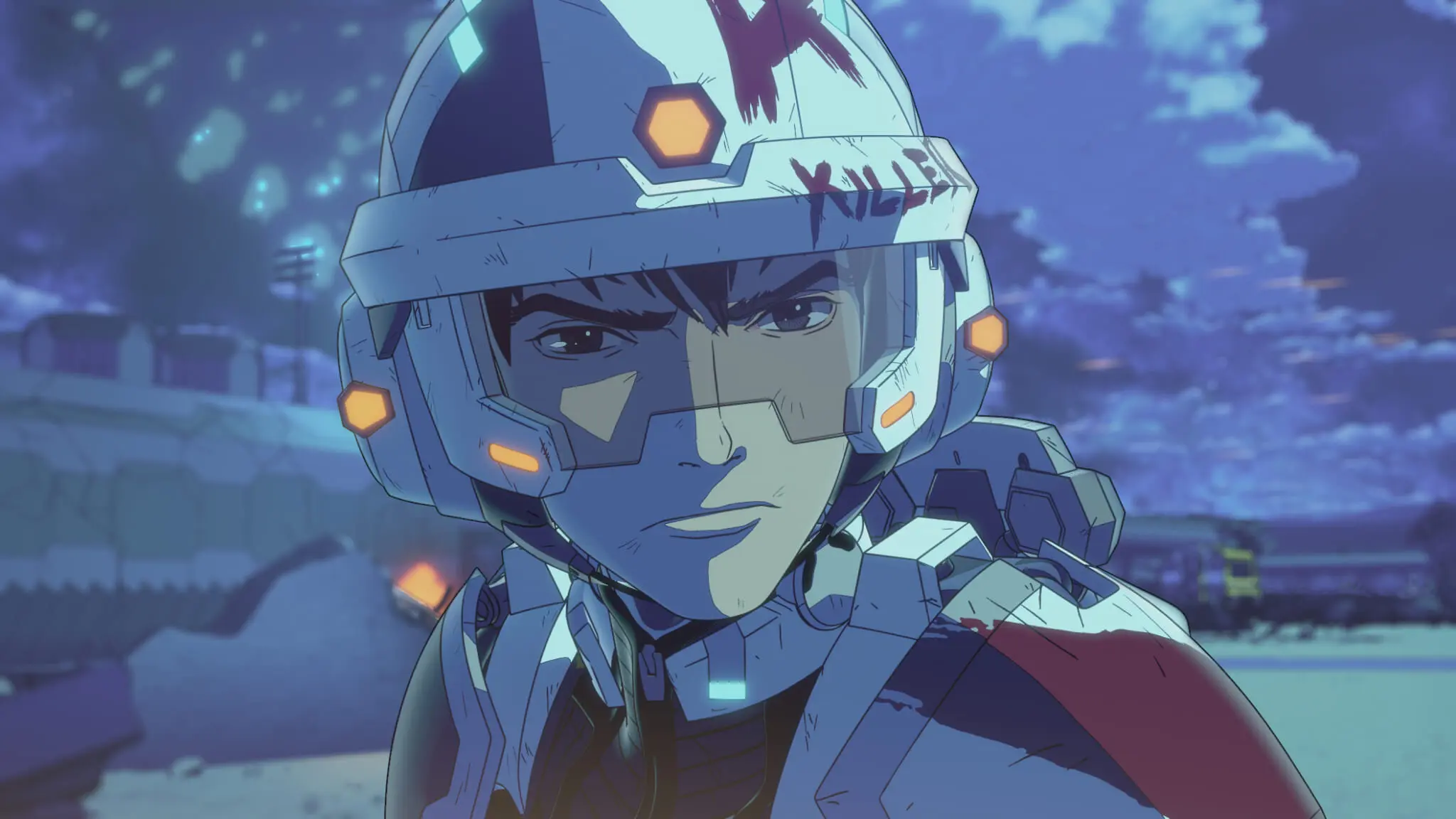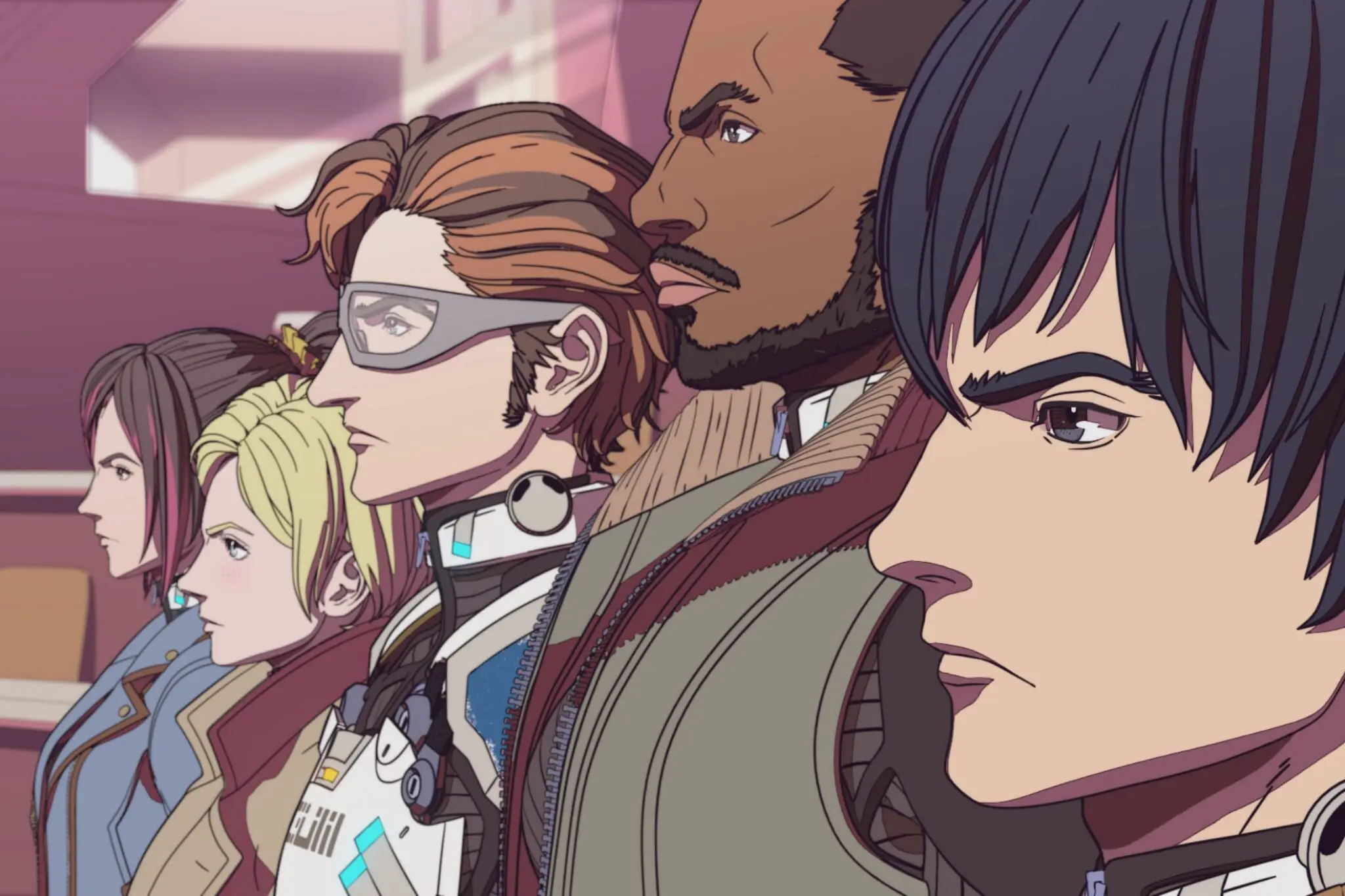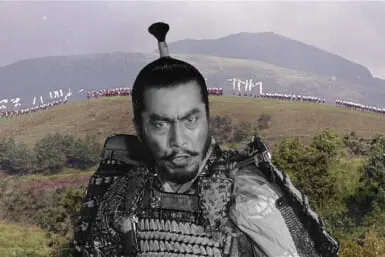No, this isn’t a food-themed anime, although you’d be forgiven for thinking it was. Based on a Japanese novel of the same name by Carlo Zen, Yakitori: Soldiers of Misfortune is a sci-fi action adventure following the journey of unit K321, a group of human soldiers tasked with supporting the Trade Federation (a collective of hyper-intelligent aliens that resemble animals) in their colonization efforts.
A Space Adventure
Humanity’s future is bleak in the world of Yakitori. Earth is now considered a “third world” planet due to its lack of intellectual and technological progress compared to other more advanced galactic civilizations. As a result, humanity’s main exports are food and foot soldiers. Enter Akira, Tyrone, Zihan, Erland and Amalia, members of unit K321, also known as “Yakitori,” the most expendable rank of soldiers, more often regarded as equipment rather than people. Through two interchanging timelines, viewers get a sense of this dystopian future and the underdog role that the Yakitori unit plays in the face of an all-out space war.
The first timeline follows their story on a mission to the planet Barka, fighting against a nation of anthropomorphic rats. Among the Trade Federation army ranks are other animals, including dogs, elephants and frogs. A serious conflict arises with seemingly no way out and the members of the Yakitori must make a decision with potentially devastating consequences. In the second timeline, the anime explores Yakitori’s origins, from how Akira was first recruited to the intense and unorthodox training they received. We also see the group eventually warming to each other and working together as a team.

Mixed Messages and Dubious Morals
While an interesting premise, Yakitori doesn’t shape up to deliver any specific message. On the surface, there appears to be some kind of moral to the story in flipping the narrative of humans being enslaved by animals. However, this doesn’t get pushed beyond some snarky remarks about the yakitori being “property” of the Trade Federation. It also doesn’t explain the in-fighting between the different animal races and the genocidal treatment given to the rats living on planet Barka.
Narrative switching always shakes up a story and prevents it from being too linear, but there’s not a strong indication to the audience of when the time skips are happening, as characters look the same and their perceived growth from foot soldiers to elite mercenaries is not immediately apparent. This can lead to quite a bit of confusion, but the change in narrative is easier to understand in later episodes.
A Unique Art Style and Music
What is immediately apparent upon watching Yakitori is the art style, which is unlike any other. With cell shading and strong line art, Yakitori almost looks like a blend of a Japanese anime aesthetic with an American comic book vibe. Slow scenes and panning shots are impressive. The anthropomorphic animals are creepy in an uncanny way. As is the weird space AI that looked exactly like Hatsune Miku as a rabbit. This resemblance to the iconic blue-haired Vocaloid was never explained. When in movement, the flow feels a bit choppy and loses dynamism. It’s unfortunate, as there are quite a few battle scenes that would have been breathtaking but ended up being quite slow.
Music in Yakitori is hit and miss. The opening sequence, composed by Ken Ishii, hits hard like a cyberpunk tune and is the perfect pick-me-up for a going-to-war scene. In contrast, the chirpy ending theme “Play That Little Night Music” has some gravitas to it befitting a space epoch although the Mozart remix is a little bit odd. In fact, there’s quite a bit of classical music in the episodes which is more jarring than complementary to the visuals.

A Time Skip or a Hard Skip?
Yakitori: Soldiers of Misfortune has an interesting premise that lacks any kind of follow-through. As the first season is only six episodes long, it can be difficult for viewers to truly feel hooked and engaged with the story. I ended the series feeling like I hadn’t watched anything at all. The visuals are great to a point, but the fight scenes lack that oomph that most seasoned anime watchers would be expecting. Ironically, watching Yakitori reminds me of the same grilled chicken skewers being served up at my local convenience store: a quick, salty hit that might fill you with regret afterward.









